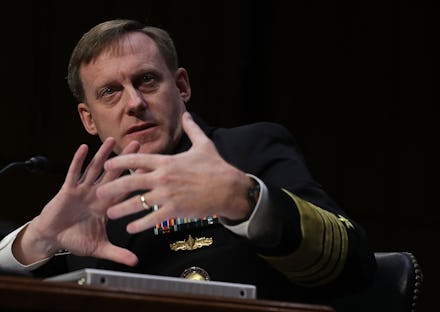NSA chief Mike Rogers suggests Russia tried to get Donald Trump elected

National Security Agency and U.S. Cyber Command chief Adm. Michael S. Rogers did not mince words this week: It seems to be his opinion that the government of Russia attempted to interfere with the 2016 presidential elections in favor of GOP nominee Donald Trump.
At a Wall Street Journal conference on Tuesday, Rogers said whistle-blowing website WikiLeaks, which released emails from the Democratic National Committee and Democratic nominee Hillary Clinton's campaign in the past year, was coordinating with a "nation-state" seeking a Trump victory.
"This was not something that was done casually. This was not something that was done by chance," Rogers said. "This was a conscious effort by a nation-state to attempt to achieve a specific effect."
Rogers is unmistakably referring to Russia, which U.S. intelligence officials believe may have had direct involvement in the leaks or at least provided the information derived from them to WikiLeaks.
The Clinton campaign made the accusations more openly in the last months of the race. In mid-October, the Ecuadorian government cut off WikiLeaks founder Julian Assange's internet access at its embassy in London.
On the campaign trail, Trump struck a less hawkish tone on Russia than Clinton, making favorable references to Russian President Vladimir Putin's "strong" leadership style, daring Russia to hack the U.S. government and pledging to reset poor United States-Russia relations. Trump also talked with Putin on Monday; the next day, the Russian military stepped up its bombing campaigns in Syria.
However, some intelligence experts have thrown doubt on the nature of the WikiLeaks-Russia connection — and others have noted Democrats' problems on Nov. 8 were much deeper than a few embarrassing revelations.
"Let's be clear: If Trump wins tonight, it will be solely the fault of Americans," the New Republic's Clio Chang wrote earlier this month. "Holding up Russia as a scapegoat won't account for the very serious problems that brought us to this point."